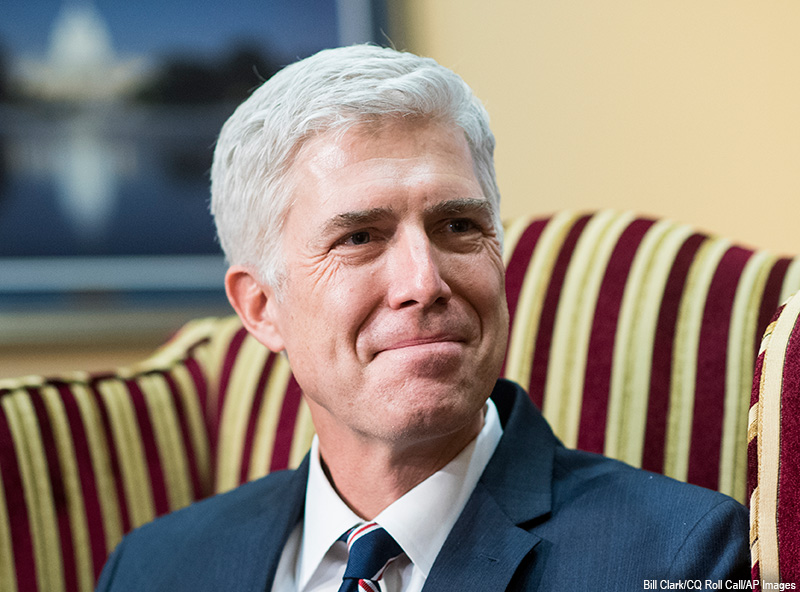Neil Gorsuch: Trump’s SCOTUS Pick
The death of Justice Antonin Scalia last February left a vacancy on the Supreme Court that President Obama tried, and failed, to fill with his nominee, Merrick Garland. This week, President Trump announced his own pick to fill Scalia’s empty seat: Judge Neil Gorsuch, a federal appeals court judge who is thought to be very similar to Scalia in his judicial rulings and constitutional philosophy. Here, what we know so far about Judge Gorsuch.
Related Links: Click on the links below to review Election Central’s posts about this topic that were written at the time.
Career
Neil Gorsuch was born on August 29, 1967 in Denver, Colorado. He attended Columbia University, Oxford University, and Harvard Law School (as a classmate of President Obama), clerking for two Supreme Court justices, before joining a private law practice. In 2006, he was nominated by President George W. Bush to serve on the U.S. Court of Appeals. The Senate confirmed him immediately, with the full support of the American Bar Association. He is considered to be a well-liked and popular judge, and is widely praised both for his extraordinary writing talent and his charming personality.
Related Links: Learn more about the federal court system by clicking the links below.
An overview of the federal courts role and structure
A map of the federal circuit court system’s geographical boundaries
Views
A solidly conservative judge, Gorsuch holds many of the same constitutional views that Justice Scalia did. For example, both men are opposed to policies that strongly separate church and state (Gorsuch sided with the craft company Hobby Lobby when they refused to provide their employees contraceptive coverage for religious reasons). He supports Scalia’s policy of “originalism,” meaning that he feels judges should interpret the constitution as it was intended when originally written.
He is strongly opposed to doctor-assisted suicide for terminally ill patients, which is now legal in six states, and is the author of a book speaking out against euthanasia. Though he has never written an opinion addressing Roe v Wade, it stands to reason that he is opposed to abortion rights as well, based on his opposition to euthanasia and statements that all human life has intrinsic value.
What Happens Next?
Despite Gorsuch’s legal qualifications, Senate Democrats, still angry over Republicans’ stonewalling of Merrick Garland, have vowed to oppose any Trump nominee to the Supreme Court. Republicans have only a slight majority in the Senate (52 to 48), and Gorsuch will need 60 votes to be confirmed. Any Democrat is allowed to wage a filibuster, which is a long speech that is used to delay the legislative process. If they do this, it could postpone Gorsuch’s confirmation indefinitely. The only option left to Republicans at that point would be the so-called “nuclear option”: using their majority to change Senate rules and abolish the filibuster. Whether or not the Senate decides to “go nuclear,” it seems safe to assume that Gorsuch’s road to bipartisan confirmation will not be an easy one.



